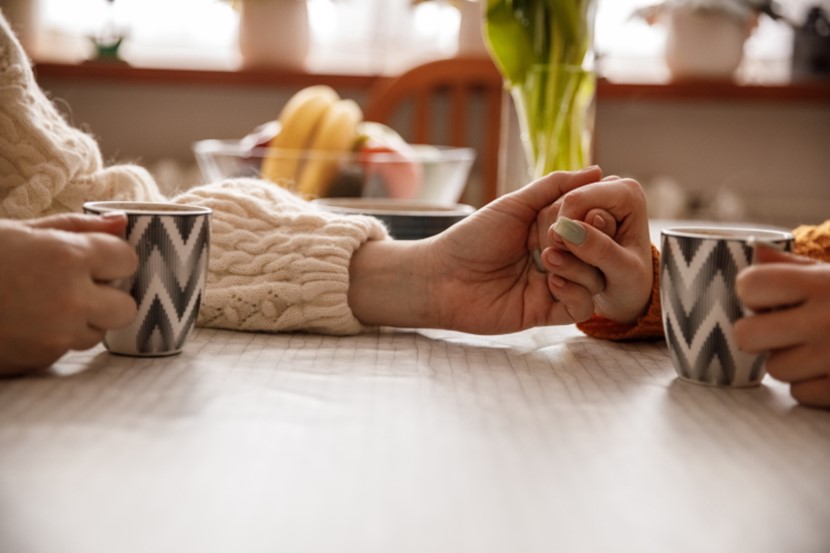From surviving to thriving: one mother's story of finding relief

Postnatal depression and associated distress are common conditions that still get left out of most coffee group conversations, leaving women to struggle in isolation. Talia Blake shares her story in the hope that it encourages other women to ask for help.
I'm not a writer. I don't have time for blogging. I'm a Mum. I'm a daughter. A wife. A sister. A Nurse. Certainly no eloquent writer. But I've had it on my heart to share a corner of my story in the hopes of reaching out to someone else’s depth.
To the mum exhausted, in the dark, emotionally holding on by a thread, coping (just) with the intensity of motherhood, but feeling like you lost that spark.
To the woman whose patience wears thin and you don't even realise it's anxiety that's hindering your breath.
To the mother who completely adores her children but also wants the throw them out the window sometimes. To the woman who feels the pang of disappointment when other people just don't 'get' how hard your life truly is: This message is for you.
I was so busy surviving in that first year - you know how it is: NICU/SCBU, babies, vomit, breastfeeding, sleeplessness, smiles, laundry, first giggles, poo-splosions, milestones, highs and lows... I never waved a flag on the postnatal depression questionnaires. I felt traumatised, not depressed. Had someone asked me after the first year, when I had an inch of space to realise I was crumbling, perhaps the flags would have been up and waving red. But no one asked.
Surely after the first year, if you've made it through, then you're doing okay, right? Wrong. It was then that I needed help. When my resilience was eventually eroded away, I crumbled in a heap. That's when I started medication. That's when my life changed.
The little white pills haven't changed my circumstances but they have eased the storm that trauma left in my heart. They softened the edges that hardship had carved on my spirit. I am now able to breathe. Keep calm. And carry on, with positivity gracing most moments. I am now able to be the kind, patient, happier mother and woman I truly am. My only regret is not doing it sooner.
Why do we resist medication so much? Sometimes I feel sad about the moments I lost to being on-edge, the moments I could have been softer and warmer with my precious children but I didn't see how medication could help me. I missed moments of being present and enjoying them more fully, all because of stigma or perceptions about PND and antidepressants. So please - if you are finding it all pretty tough, if you feel torn between dreading the next groundhog day but also loving your babies to bits, tell someone you trust, that you might want to discuss medical help.
Acknowledging how you feel (or perhaps, how you don't) does not erase the wide rivers of powerful love you have for your children. It just means you're brave enough to try any avenue possible to be the best you can be, to be stronger and softer for yourself and your family. I feel so much happier. So much more me. I wish I'd got help sooner. And I strongly and deeply encourage you to consider seeking help if you need it too.
Much love, from one normal mum to another.
Arohanui.
Talia xox
If you have any concerns about how you are feeling or coping, talk to your doctor or LMC. Talia also recommends the following support groups and helplines for anyone struggling with postnatal depression, trauma, anxiety or distress:
The Depression Helpline (0800 111 757)
Lifeline (0800 543 354)
The Samaratians (0800 726 666)
Youthline (0800 376 633)
Plunket (0800 933 922)
The Mental Health Foundation of New Zealand - mentalhealth.org.nz
The Postnatal Distress Support Network Trust - postnataldistress.co.nz

